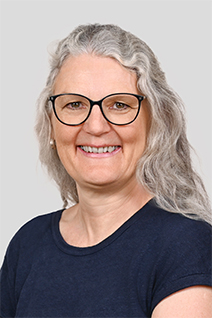Möchten Sie Jugendliche beim Erlernen der englischen Sprache begleiten? Der Fachbereich Englisch an der PHBern vermittelt Ihnen eine fundierte Auseinandersetzung mit der Weltsprache Englisch in all ihren Facetten.
English as a subject area provides you with a comprehensive study of a widely spoken language from multiple perspectives. Throughout your studies, you will examine English from pedagogical, linguistic, and cultural viewpoints, developing the competences necessary for effective language teaching.
The program addresses key questions about how learners acquire English as a foreign language and how they can be supported in understanding the diverse cultures of the English-speaking world. You will study established teaching methodologies while developing both your language proficiency and pedagogical competencies.
By the end of your studies, you will have achieved advanced professional language skills and solid pedagogical expertise, preparing you to teach effectively in various classroom contexts. The program equips you with the tools needed to guide learners in using English as a means of global communication and cultural exchange.
Merkmale zum Studium im Fachbereich Englisch
- Sie erwerben kulturelle, linguistische und didaktische Kompetenzen für den Englischunterricht nach Lehrplan 21 und erweitern gleichzeitig ihre berufsspezifischen Sprachkompetenzen.
- Sie erlernen abwechslungsreiche Ansätze für einen lebendigen und lebensweltnahen Englischunterricht mit Bezug zu Lehrplankompetenzen und obligatorischen Lehrmitteln.
- Die enge Kooperation mit erfahrenen Praxislehrpersonen garantiert eine fundierte Ausbildung, die wissenschaftliche Erkenntnisse mit praktischen Erfahrungen verknüpft.
- Ein selbst organisierter Sprachaufenthalt von mindestens zwei Monaten im englischsprachigen Raum ermöglicht unmittelbare Begegnungen mit Sprache und Kultur. Selbstverständlich ist auch ein Austauschsemester an einer Partnerhochschule der PHBern möglich.
- Für das Studium im Fachbereich Englisch ist kein Sprachdiplom erforderlich. Ein Sprachniveau von B2 oder höher erleichtert jedoch den Studieneinstieg erheblich.
- Zum Studienabschluss ist der Nachweis berufsspezifischer C2-Kompetenzen in Englisch erforderlich. Der Nachweis geschieht im Rahmen der Ausbildung am Institut Sekundarstufe I. Wer bereits ein Cambridge Proficiency oder ein anderes Sprachdiplom C2 mitbringt, kann Antrag auf Anerkennung stellen.
Inhalte und Themen
An welchen Themen wird im Fachbereich Englisch gearbeitet?
- Planning and teaching English lessons using task-based methodology: English courses at the secondary school today employ task-based methodology which means that their pupils engage actively with authentic, real-life situations and topics as the basis for learning English.
- Improving your receptive and productive language skills: A high level of language competency is essential for teaching English at the secondary school. Flexibility in language use is key to competently dealing with a variety of classroom situations.
- Drawing upon the experience and knowledge of the cultural diversity found in the English language classroom and the English-speaking world and making use of this in the secondary school classroom.
- Evaluating learners’ needs and adapting lessons accordingly.
- Assessing learners’ language skills.
- Planning and evaluating projects in English which are based on authentic materials and, in some cases, the content of other secondary school subjects.
You will demonstrate expertise in applied linguistics, language pedagogy, and cultural studies, applying these disciplines to critically analyse, evaluate, and design teaching materials, texts, and tasks.
Through systematic engagement with diverse academic fields, you will develop the ability to critically examine instructional resources and adapt them for effective pedagogical use. This process enables you to gain a thorough understanding of the complex dynamics involved in second language acquisition and teaching.
You will create coherent lesson sequences grounded in task-based and content-driven methodologies.
Effective English language teaching requires robust subject knowledge in both lesson planning and syllabus design. You will learn to approach teaching from a learner-centred perspective, focusing on the competences learners need to develop whilst systematically enhancing the competences as given by the curriculum: "Hören, Sprechen, Lesen, Schreiben, Sprachen im Fokus und Kulturen im Fokus." By incorporating authentic materials, digital resources, and cultural content, you will facilitate meaningful learning experiences.
You will establish inclusive learning environments, monitor individual progress, and implement differentiated teaching strategies.
English language teaching must accommodate learners' varied backgrounds and proficiency levels. Inclusive pedagogical approaches ensure all learners are supported in developing their language competences progressively. This requires recognising individual learning needs and cultural contexts, incorporating these through varied tasks, scaffolding techniques, and multiple learning modalities.
You will design both formative and summative assessments and deliver constructive, competency-focused feedback.
Assessment in English language teaching aligns with curriculum competency frameworks. You will learn to create appropriate assessment tools for both receptive and productive language competencies, provide developmental feedback, and guide learners in self-assessment and reflective practice to enhance their language proficiency.
You will foster a supportive classroom environment that encourages authentic communication in English.
Effective English language teaching depends on genuine communication opportunities and a positive learning atmosphere. As a teacher, you will strategically implement pedagogical approaches that develop ‘überfachliche Kompetenzen’. You will use English both as a medium of instruction and as the subject of study, actively promoting learner-learner interaction and collaboration in the target language.
Vertiefte Informationen finden Sie auch in den jeweiligen Studienplänen der verschiedenen Studienprofile.

